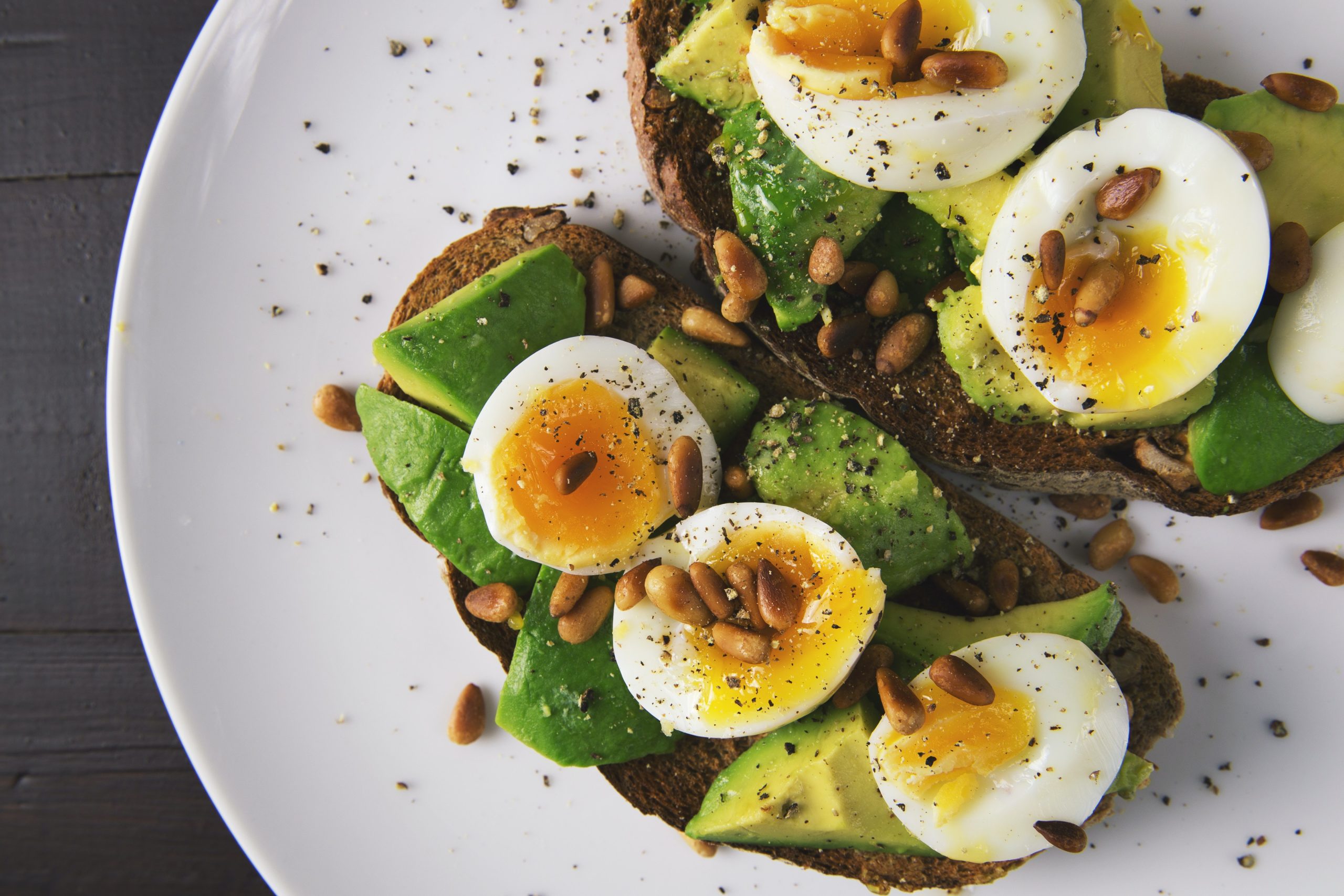
Can the Gut-Brain Axis Influence Mood? And Recommendations for a Healthy Microbiome
If you’ve ever had a “gut feeling,” you know there’s a strong connection between your stomach and how you feel. This connection is called the gut-brain axis, and it’s a physiological and psychological connection. In this week’s blog, we’ll answer the question: can the gut-brain axis influence mood? We’ll also give you some recommendations for a healthy microbiome.
The microbiome is a fascinating system within our bodies. When you think of microorganisms, bacteria or germs may come to mind. But did you know that your body always hosts millions of tiny organisms? In fact, microorganisms in your body outnumber your own cells by 10 to 1.
These tiny life forms aren’t just sitting around either. We rely on microorganisms for many of our physiological processes. They help us digest food, create vitamin K, and help develop our immune system. And they’re not just in the gut – they live on our skin, respiratory tract, mammary glands, and urinary tract.
At KarmaDocs, we take care of the whole patient. Integrative mental health care means not just looking at a person’s diagnosis. It means considering the whole person and their entire life. We help patients who are struggling as they regain control over their minds and their lives. If you’re noticing mood fluctuations, contact us for support from a team that actually cares.
We want you to have access to good health information that’s easy to understand, so you can make the best decisions for your health. That’s why we explore ideas like how to choose the right mental health professional and science-backed treatments for depression. This week, we’re exploring how your gut influences the way you feel.
You’ve probably heard the words “gut health,” “gut-brain axis,” and “microbiome” before. But what do these words mean? And what’s the physiology that connects your brain with your stomach? Let’s talk about how the connection between our stomach and brain influences mood.
Basics of the Gut-Brain Axis
First, let’s go over some common words you might have heard about the connection between your brain and your belly.
- The Gut-Brain Axis: This is the communication between the central nervous system (your brain and spinal cord) and the nerves in your stomach. This links the cognitive and emotional parts of the brain with intestinal functioning.
- Microbes & Microorganisms: These are tiny life forms, sometimes only made up of a few cells. Bacteria, fungi, and viruses are all microbes. The microbes in your stomach influence the gut-brain axis by working on nerves in the intestines.4
- Microbiome & Microbiota: This is a community of microbes that live close together, often in one body organ. Your microbiota is specific to you – no one else in the world has the same balance of microbes. Some scientists call this a “molecular fingerprint.”
- Gut Health: This term refers to the health of the entire gastrointestinal system, from your mouth to your anus. But often, when people use this term, they’re talking about how well your intestines can process food and the balance between “good” and “bad” bacteria.
- Good vs. Bad Gut Bacteria: Good gut bacteria help with digestion and keep your bowel movements regular. Bad gut bacteria may contribute to stomach problems, like diarrhea and indigestion. Both are present in your stomach, but certain behaviors and foods may cause imbalances.
- Bacteria Dysbiosis: This is when the microbiota in one organ is out of balance. Dysbiosis in the gut can manifest in irritable bowel syndrome, celiac disease, and even allergies and asthma.
Once we put all these terms together, we get a two-way connection between the unique microbiota in our intestines and brains. But how does the gut-brain axis influence mood? Could disturbances between good and bad bacteria lead to changes in your mental health? Let’s talk about it.
The Gut-Brain Axis and Mood
One of the biggest ways the gut-brain axis influences mood is through serotonin production. Serotonin is essential for basic processes in the stomach and the brain. It regulates mood, emotions, and appetite in the brain. In the stomach, serotonin is essential to move food down the digestive tract. It also regulates digestive juices and pain perception.
Nearly all of the serotonin our bodies need for these essential processes is made in our intestines. But it isn’t really you that’s making all that serotonin – it’s your microbiome. That’s right, the bacteria in your gut create the chemical that regulates your mood.
Research into the association between gut bacteria and mood supports this connection. In studies of people with depression and people without it, those with depression had more inflammatory gut bacteria than those without it. Dysbiosis has also been strongly associated with schizophrenia, which may help guide future treatment for this debilitating disease.
Speaking of treatment, when we work with patients who have depression, anxiety, PTSD, and other mental health diagnoses, we’re often targeting serotonin. SSRIs (Selective Serotonin Reuptake Inhibitors) increase the amount of serotonin at junctions in the brain. They also prevent serotonin from being taken out of junctions between synapses, so it stays around for longer.
In this way, SSRIs are thought to help with mood by making up for a deficiency in serotonin. Other antidepressants, like SNRIs, MAOIs, and Tricyclics, target serotonin and other neurotransmitters as well. Serotonin is only one of the chemical messengers that could contribute to your mood.
So now that we understand how gut bacteria can influence our mood, what are ways to feed your good bacteria so they can produce serotonin?
How Do I Get a Healthy Gut for My Mental Health?
There are a few habits that have been shown to feed good bacteria and could lead to a better mood due to serotonin.
Prebiotics and Probiotics
A diet with pre- and pro-biotics could help feed good bacteria. Prebiotics are plant fibers that your body can’t digest, these feed good gut bacteria. Probiotics are living good bacteria strains that can give balance to your microbiome. When good bacteria are fed, they may be able to produce more serotonin.
Early trials in rats confirm this effect. When rats were given prebiotics and probiotics to spur good bacterial growth, their serotonin levels increased in the brain and gut. Some researchers believe in using prebiotics combined with antidepressants for this reason.,
Prebiotics are easy to add to your diet, and you may already be getting some of them. Check out these prebiotic foods:
- Garlic
- Onions
- Leeks
- Asparagus
- Bananas
- Oats
- Barley
- Apples
- Cocoa
- Flaxseeds
Probiotics are found in fermented foods. Here are some common probiotics foods:
- Yogurt
- Kombucha
- Pickles
- Miso
- Kimchi
- Sourdough Bread
- Some Cheeses
- Kefir
Adding these foods to your diet can help feed good gut bacteria and may help with serotonin production. But keep in mind that this evidence is still very preliminary. Speak with your doctor or nutritionist about their recommendations for your gut. Or, book a consultation with us to learn how we can help boost your mood.
Interested in learning more about foods that could help boost mood? Check out our blog on foods that help with depression.
Summing Up the Gut-Brain Axis and Mood
The Gut-Brain axis is a growing field of study. If you’re like us, you’re fascinated by the way our brains create our lives. Chemical signals like serotonin influence our decisions, mood, and personality.
We’re looking forward to learning more about this connection between our bellies and our brains and how we can use it to treat patients.
But if you’re experiencing mood swings, depression, anxiety, or other mental health symptoms, taking a prebiotic or probiotic alone may not help. Combined therapy and appropriate medications are still the best treatment options for patients.
Don’t wait to seek help if you’re struggling with depression or your gut-brain axis. Our interdisciplinary team of mental health professionals can help get to the root cause of how you’re feeling, so you can feel better sooner. Contact us today to set up a remote or in-person appointment in Palm Springs or Gramercy Park.
Resources:
1)U.S. Department of Health and Human Services. (2015, August 31). NIH human microbiome project defines normal bacterial makeup of the body. National Institutes of Health. Retrieved August 17, 2022, from https://www.nih.gov/news-events/news-releases/nih-human-microbiome-project-defines-normal-bacterial-makeup-body
2)Stark LA. Beneficial microorganisms: countering microbephobia. CBE Life Sci Educ. 2010 Winter;9(4):387-9. doi: 10.1187/cbe.10-09-0119. PMID: 21123679; PMCID: PMC2995750.
3)Ogunrinola GA, Oyewale JO, Oshamika OO, Olasehinde GI. The Human Microbiome and Its Impacts on Health. Int J Microbiol. 2020 Jun 12;2020:8045646. doi: 10.1155/2020/8045646. PMID: 32612660; PMCID: PMC7306068.
4)Carabotti M, Scirocco A, Maselli MA, Severi C. The gut-brain axis: interactions between enteric microbiota, central and enteric nervous systems. Ann Gastroenterol. 2015 Apr-Jun;28(2):203-209. PMID: 25830558; PMCID: PMC4367209.
5)Tomasello G, Mazzola M, Jurjus A, Cappello F, Carini F, Damiani P, Gerges Geagea A, Zeenny MN, Leone A. The fingerprint of the human gastrointestinal tract microbiota: a hypothesis of molecular mapping. J Biol Regul Homeost Agents. 2017 Jan-Mar;31(1):245-249. PMID: 28337900.
6)Gagliardi A, Totino V, Cacciotti F, Iebba V, Neroni B, Bonfiglio G, Trancassini M, Passariello C, Pantanella F, Schippa S. Rebuilding the Gut Microbiota Ecosystem. Int J Environ Res Public Health. 2018 Aug 7;15(8):1679. doi: 10.3390/ijerph15081679. PMID: 30087270; PMCID: PMC6121872.
7) Bamalan OA, Moore MJ, Al Khalili Y. Physiology, Serotonin. [Updated 2022 Jul 9]. In: StatPearls [Internet]. Treasure Island (FL): StatPearls Publishing; 2022 Jan-. Available from: https://www.ncbi.nlm.nih.gov/books/NBK545168/
8)Terry N, Margolis KG. Serotonergic Mechanisms Regulating the GI Tract: Experimental Evidence and Therapeutic Relevance. Handb Exp Pharmacol. 2017;239:319-342. doi: 10.1007/164_2016_103. PMID: 28035530; PMCID: PMC5526216.
9)Huang TT, Lai JB, Du YL, Xu Y, Ruan LM, Hu SH. Current Understanding of Gut Microbiota in Mood Disorders: An Update of Human Studies. Front Genet. 2019 Feb 19;10:98. doi: 10.3389/fgene.2019.00098. PMID: 30838027; PMCID: PMC6389720.
10)Szeligowski T, Yun AL, Lennox BR, Burnet PWJ. The Gut Microbiome and Schizophrenia: The Current State of the Field and Clinical Applications. Front Psychiatry. 2020 Mar 12;11:156. doi: 10.3389/fpsyt.2020.00156. PMID: 32226399; PMCID: PMC7080964.
11)Chu A, Wadhwa R. Selective Serotonin Reuptake Inhibitors. [Updated 2022 May 8]. In: StatPearls [Internet]. Treasure Island (FL): StatPearls Publishing; 2022 Jan-. Available from: https://www.ncbi.nlm.nih.gov/books/NBK554406/
12)Li H, Wang P, Huang L, Li P, Zhang D. Effects of regulating gut microbiota on the serotonin metabolism in the chronic unpredictable mild stress rat model. Neurogastroenterol Motil. 2019 Oct;31(10):e13677. doi: 10.1111/nmo.13677. Epub 2019 Jul 19. PMID: 31323174; PMCID: PMC6852474.
13)Nikolova VL, Cleare AJ, Young AH, Stone JM. Updated Review and Meta-Analysis of Probiotics for the Treatment of Clinical Depression: Adjunctive vs. Stand-Alone Treatment. J Clin Med. 2021 Feb 8;10(4):647. doi: 10.3390/jcm10040647. PMID: 33567631; PMCID: PMC7915600.




